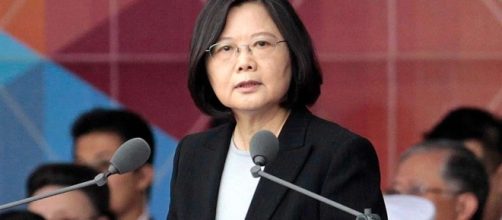China has accused the president-elect, Donald trump, of breaking diplomatic rules in his phone call with Taiwanese President, Tsai Ing-wen. The phone call is believed to be the first phone call between Taiwan and US leaders since China asked America to cease and desist dealing with Taiwan's leaders and deal centrally with Bejing.
One China policy
Today Chinese foreign minister, Wang Yi, called on the US to remember the rule of solemn representation, the idea of one-China. Although it has its own government Taiwan has to be considered part of China and the US shut their embassy down in Taiwan during the 1970's.
Although America broke off diplomatic relations with Taiwan and recognised China as the government of Taiwan, it still has close ties to the island and has been legally bound to provide the island with military support and protection.
China does not want to see its political foundations in Taiwan rocked, this complaint by China can then be seen as the Chinese government trying to stop the issue blowing up into a full-blown crisis before the president-elect takes office. They have said they would like Trump's team to tread “cautiously and properly” around the Taiwan issue.
Trump's Taiwan policy
It is still not clear exactly what is Trump's policy on Taiwan and indeed his tweets after the incident have many wondering if we are about to see a change in the US's foreign policy in regards to China.
As America still provides military assistance to Taiwan, it is considered one of the most sensitive issues between the American government and their Chinese counterparts. China still maintains it has the right to invade Taiwan should the island attempt to become independent. This has left issues with Taiwan frayed, especially since Tsai, a believer in Taiwanese independence, became the Taiwanese leader in a landslide election victory in January.
China has stated that the phone call will not change the international agreement on that fact that Taiwan is a territory of China. They also do not think the phone call is the beginning of the end of the American one-China policy.

